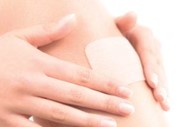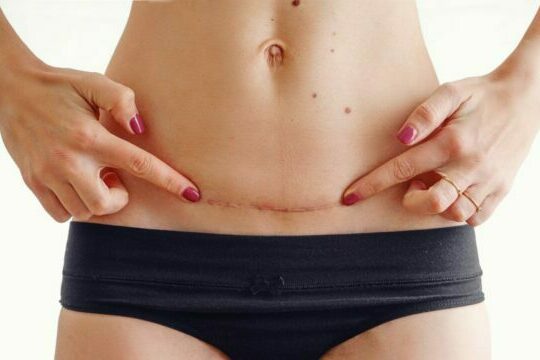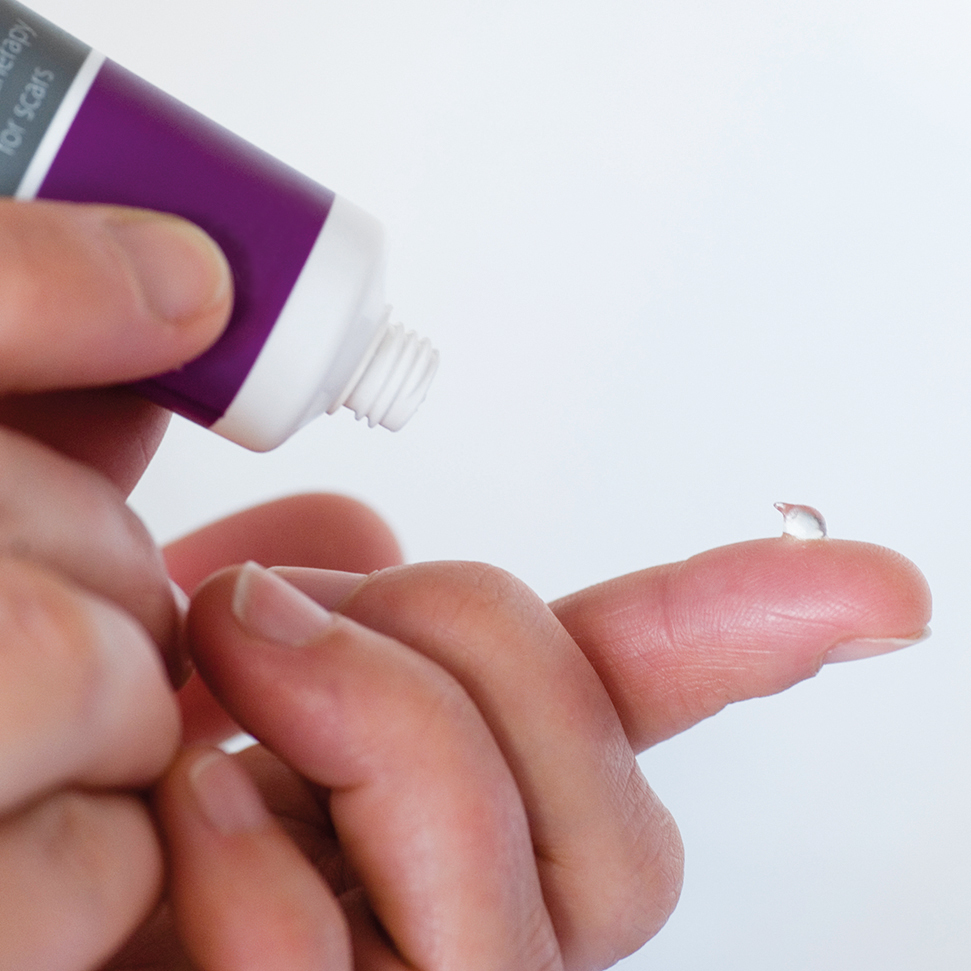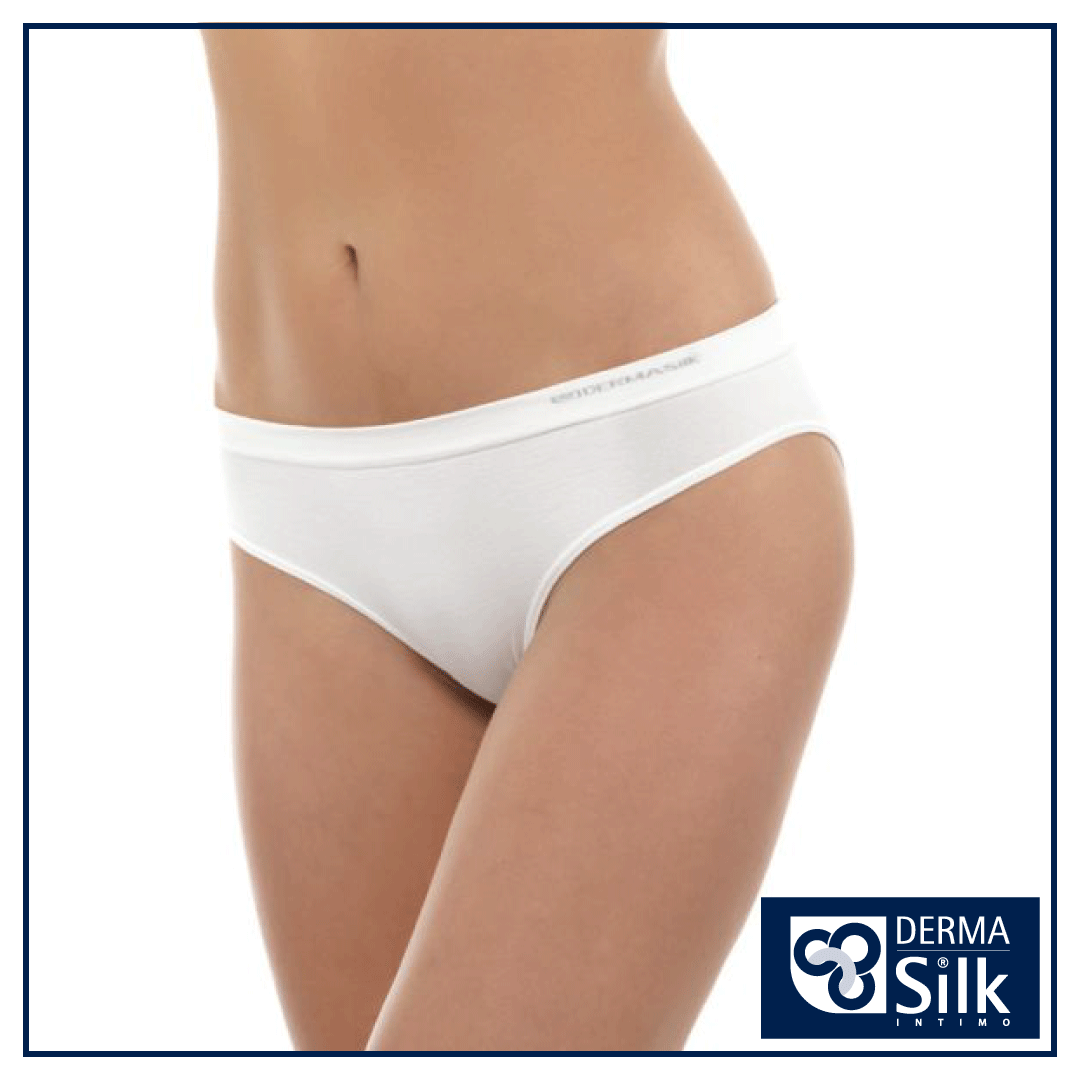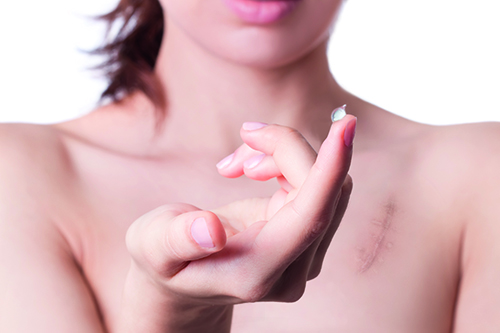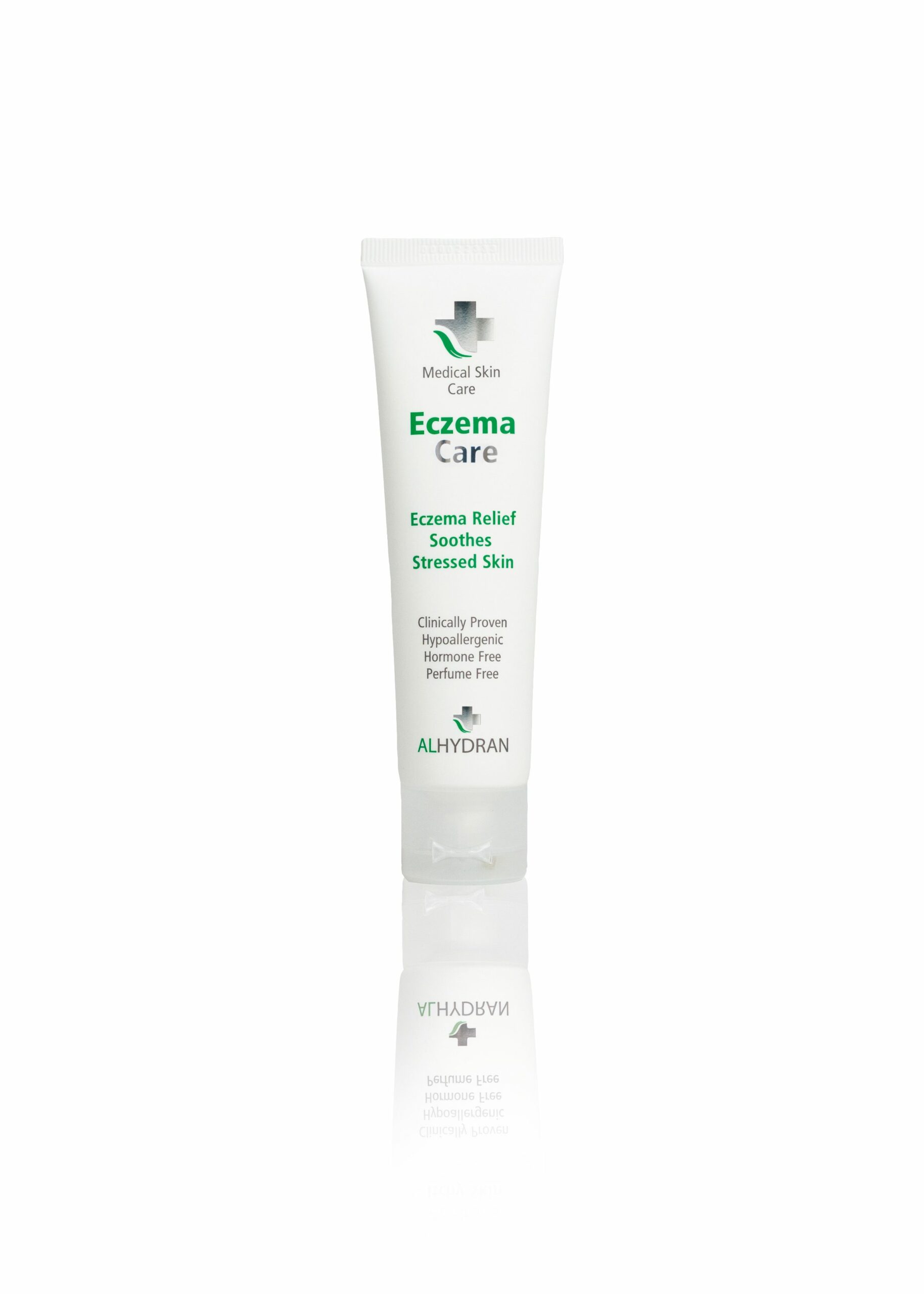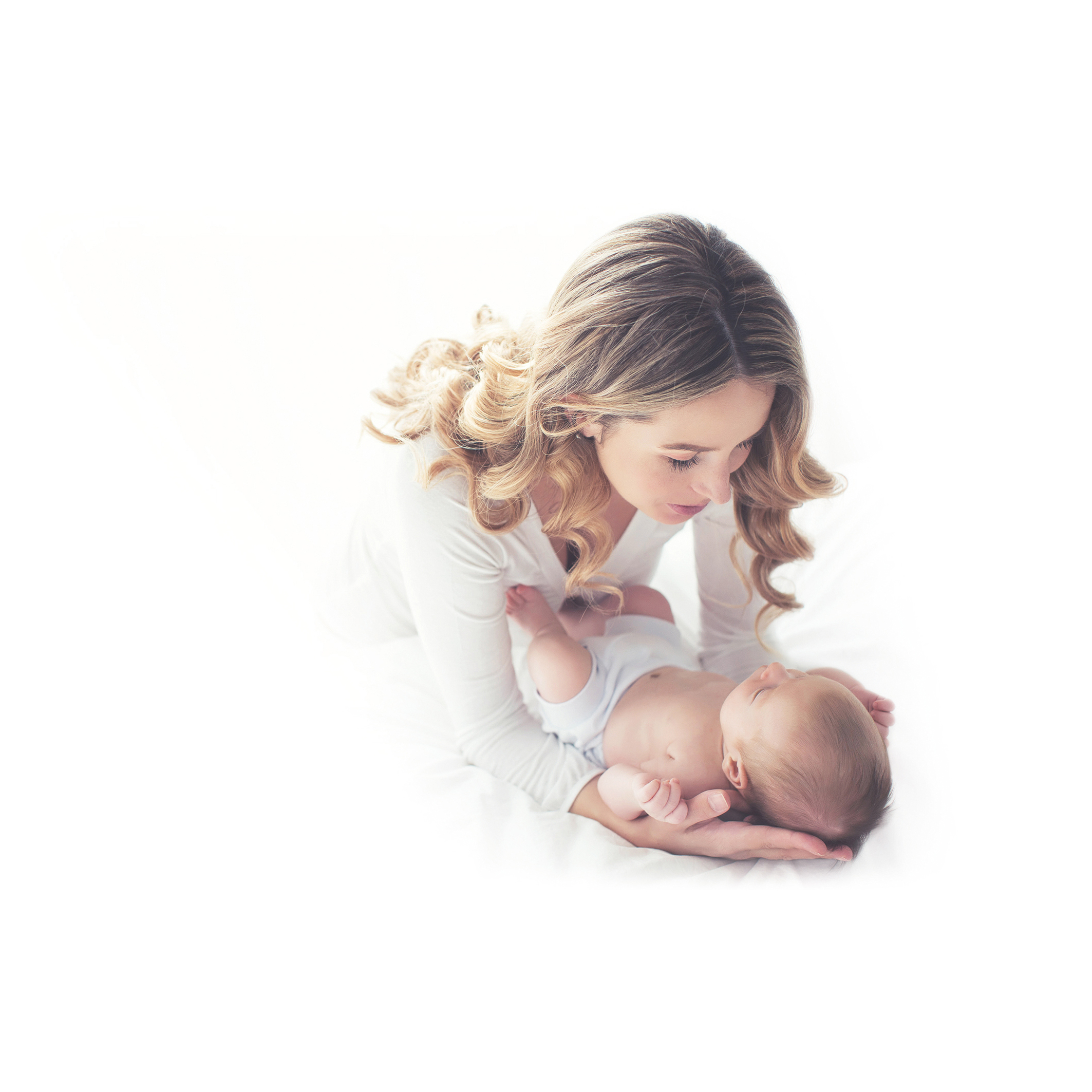Breast cancer: caring for a scar after breast surgery
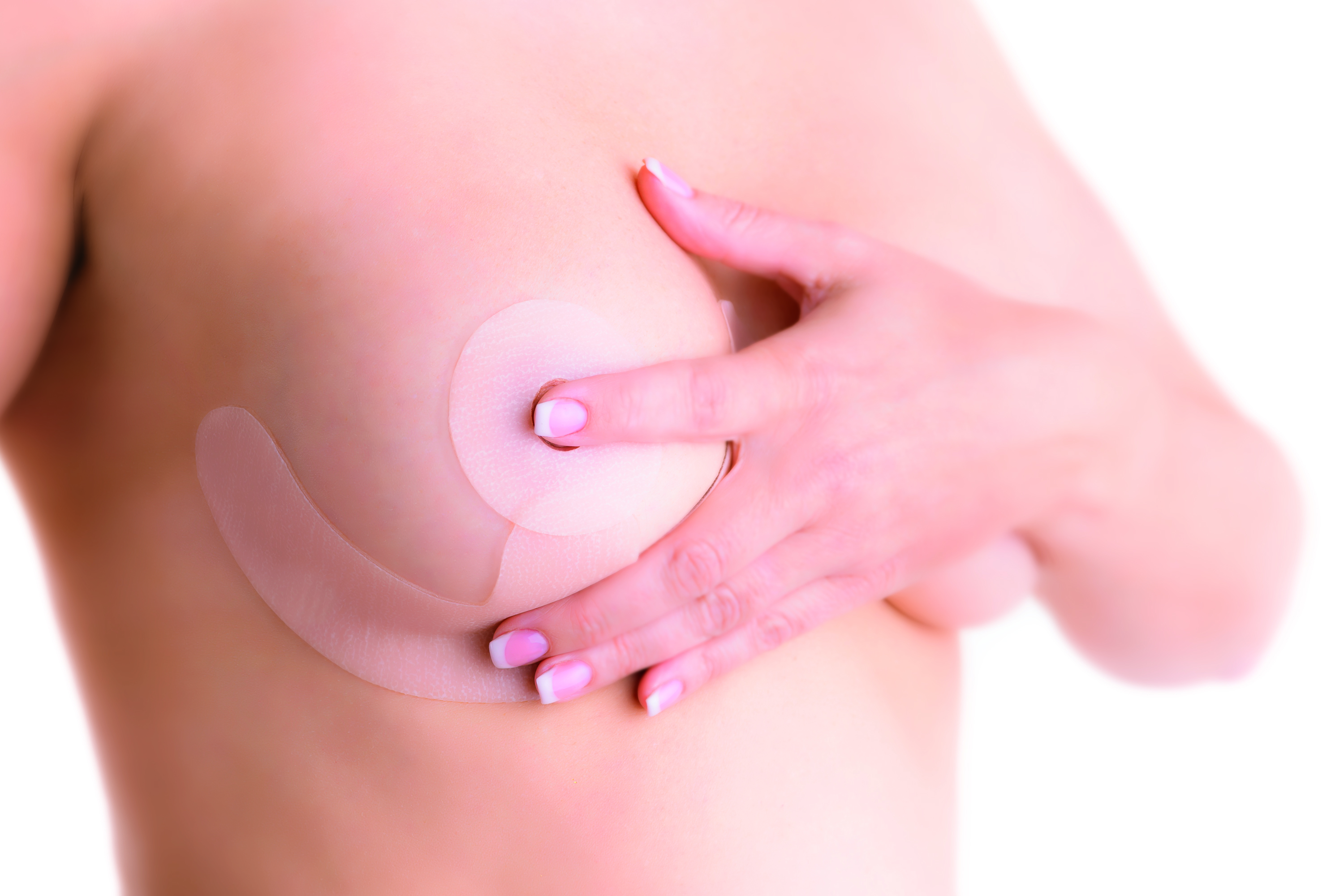
In most cases, breast cancer treatment begins with surgery. This operation (almost) always results in scars. We explain how to take care of scars after breast surgery. So that they heal nicely and reduce complaints.
Breast Cancer and Breast Surgery
(Breast) cancer changes your entire life in one fell swoop. The moment you hear that you are sick, the ground drops from under your feet. A long period of treatments and surgeries begins.
Breast-conserving surgery or mastectomy is often one of the first steps taken in the treatment of breast cancer.
After breast surgery, you will have to deal with a scar or scars. It may itch or hurt. We are happy to help you relieve these complaints and take care of your scar. Good care not only relieves the complaints but also ensures a nicer recovery of your scar.
Treating and caring for scars after breast surgery
You can treat scars in different ways. For example, with silicone and/or a scar cream or ointment.
Silicone for scar care
Simply put, silicone covers the fragile scar skin. You use silicone sheets or gels to protect and care for your scar(s). By applying silicone over the scar, your scar has a 'protective layer'.
This protective layer protects the fragile skin against external influences (UV radiation and bacteria). It also ensures the correct fluid balance of the scar. This is important for the healing process.
With the right fluid balance, the body 'inhibits the production of scar tissue'. The scar becomes smoother, flatter, less red, and calms down faster.
Silicone sheets for breast scars
Scarban has special silicone plasters for scars near the breast. The bandages offer UV protection, stay in place, and feel good.
Scarban silicone sheets are suitable for:
- Both old and new scars and all skin types of all ages
- The treatment and prevention of abnormal scars (hypertrophic and keloid)
- Use under clothing
- The treatment of persistent functional problems caused by the scar (persistent redness, scar pulling, itching, restriction of movement of
joints, discomfort and cosmetic objections)
Scar cream and scar ointment
Scar cream or ointment is another treatment method for the care of scars. This is also good to use in combination with silicone plasters. For example, you can wear a silicone patch during the day and apply a scar cream at night for optimal care of your scar.
A scar is 'damaged skin' and loses more moisture than 'healthy skin'. Scar cream can help keep the skin moist. In addition, scar cream can provide a more supple and flexible skin. This is nice for pulling scars.
Scar cream and silicone sheets both offer benefits for the care of your breast scar.
Share this post
About the Author

Topics
- Scarban
- Scarban
- Dermasilk
- Eczema
- Alhydran
- Therapeutic clothing
- BAPScarCare
- Sensitive Skin
- Eczema clothing
- Itching
- Varicose eczema
- Dermasilk wash and care instructions
- Jock itch
- Menopause
- Chemotherapy
- Clinical studies
- Size guide
- DermaTherapy bedding
- Night sweats
- Bedsores
- Insomnia
- Night Terrors
- Recovery
- Anti-microbial
- Stain-Resistant
- Vulvodynia
- Testimonials
- Eczema in kids
- Instructions for use
- Scar treatment
- Silicone sheet
- Facial scars
- Scars on hand
- Scar on finger
- Eczema
Tags


